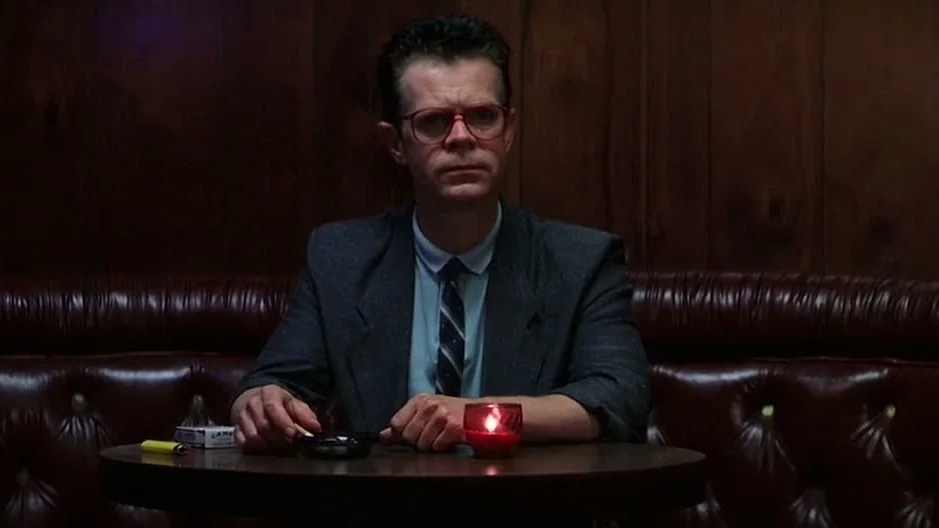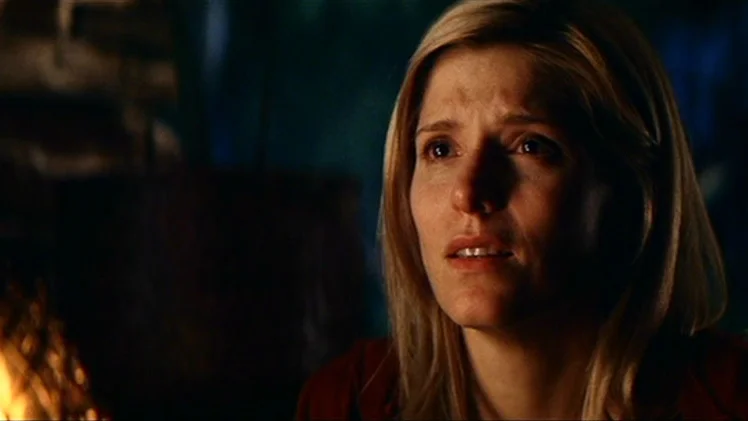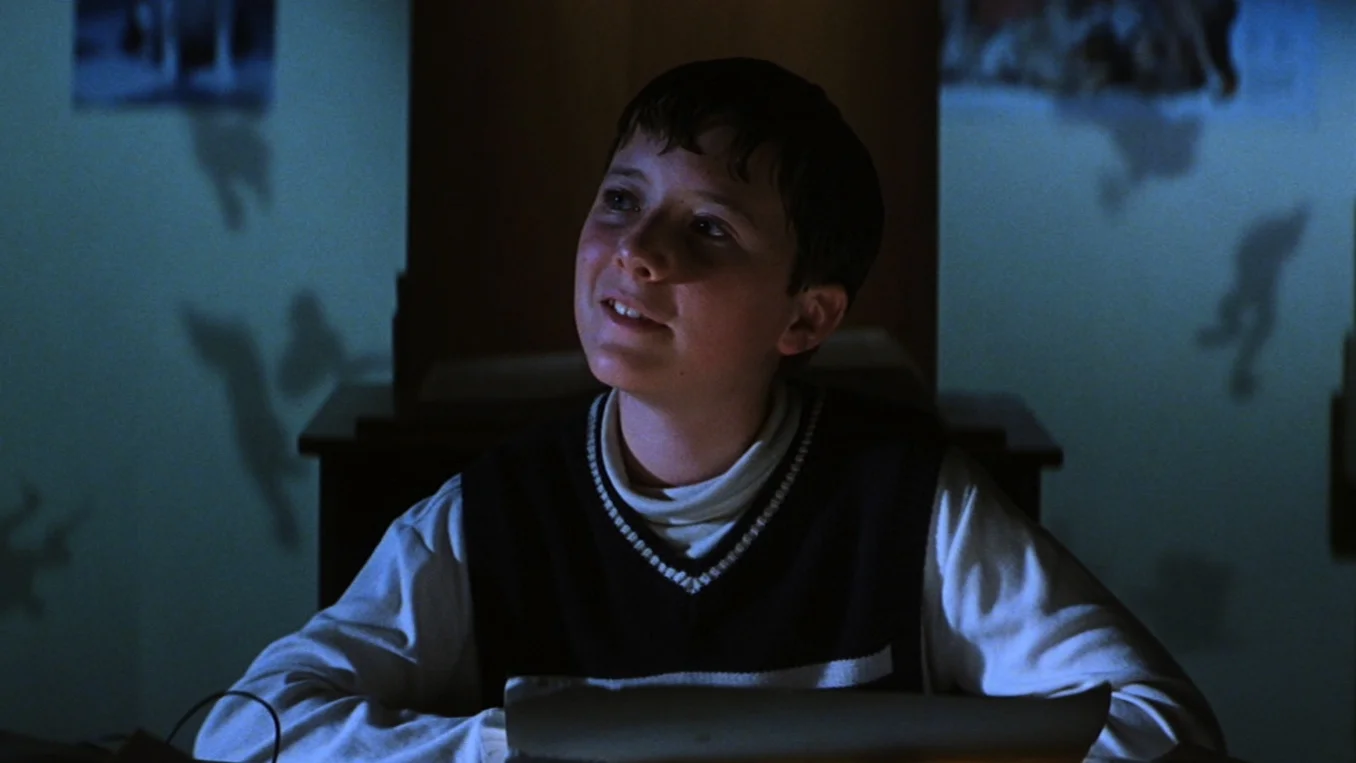Sins of the Father: Paul Thomas Anderson's Magnolia
“Our fathers sinned and are no more, and we have borne their iniquities.” Lamentations 5:7
There are a lot of ways to describe Paul Thomas Anderson’s 1999 epic drama Magnolia, but at first glance the 188-minute runtime and the layers upon layers of themes, metaphors, and foreshadowing are more intimidating than anything else. The film is an intricate tapestry of multiple intertwined lives in the sprawling Los Angeles area. This mess of characters leaves permanent marks on one another, both on body and mind, good and bad. Effects from each collision ripple throughout other stories of other lives until they circle back around again. In this way, we see the ramifications of parental abuse through multiple character dynamics.
We first see this appear through the brilliant child, Stanley Spector, who’s currently competing on the fictional TV show, “What Do Kids Know?”. Stanley is a fragile boy who wants nothing more than to be taken seriously. But his belittling, harmful father Rick just wants all the money Stanley makes, no matter the emotional toll on his son. The audience definitely doesn’t see the full extent of Rick’s exploitations and manipulations, but we watch him furiously shift blame off himself and entirely onto Stanley, even in situations where that culpability should lie solely on Rick. As if that wasn’t bad enough, Rick boastfully gives advice to other parents about how to best emotionally harm their children in brutal ways. The extent of what he’s done to his son can be seen in Stanley’s behaviors and day-to-day interactions with the TV staff and other child contestants. He’s perpetually meek and timid, always afraid to speak his mind until he has a buzzer in his hand and a quiz question in mind. After a day full of on-set disasters, Stanley finally gets up the courage to confront his father with a simple truth – “you need to be nicer to me.” You hope that this means a change lays in the future for Stanley, but, if the past of other “What Do Kids Know?” contestants is any indication, there’s no reason to feel optimistic about Stanley’s future.
Through the life of Quiz Kid Donnie Smith, we see that possible bad outcome for Stanley’s life. He was once as much of a star contestant as Stanley is now, but he’s been carrying that emotional baggage for years and years. It’s manifested in the form of a drinking problem and an unhealthy fixation on a beautiful-but-brainless bartender that takes up all of his free time from his decidedly unglamorous job at a discount electronics store. In a drunken outburst, he tells everyone in that bar that his parents stole and used all the money he earned on the quiz show, never letting him see a cent his whole life. Now, he desires to become just like Brad the Bartender, a man who’s as far opposite of him as humanly possible, and he’s confused that broken yearning with romantic love. In Donnie, we see a sick, shattered man who’s trying to break free from the lasting effects of his parents’ cruelty, but, in the film’s own words, “We may be through with the past, but that past ain’t through with us.”
The trouble doesn’t end with just the contestants, though. Through the host, Jimmy, we get another, very different tale of abuse. After the same dramatic filming day that set Stanley off, Jimmy returns home to relax away the stress and to confess some old sins to his wife, as he is slowly dying of cancer. He admits to cheating on her, but she knows the deceit runs deeper. Jimmy Gator has molested his daughter, Claudia. Well, maybe he has. Like so many destructive men, he claims to not remember whether or not it actually happened. (And, really, isn’t that just as bad, if not worse?) Claudia is now a drug abuser who doesn’t trust any of the men that come into her life. She’s a lost soul, thrown off course by what’s happened to her, desperately in need of saving.
Nearby, there’s another deadbeat dad dying of cancer. Right around the corner, Earl Partridge, the retired creator of “What Do Kids Know?”, is on his deathbed after a fight with brain and lung cancer. In his last hours, he begs to see the son he ran from many years ago. When he ran, that boy was left to take care of his dying mother before he, too, ran away to Los Angeles. That boy has grown into a new identity: Frank T.J. Mackey, a misogynistic motivational speaker who encourages men to have their way with women and desert them. There’s a bitter irony in this character he’s created to live in his whole life: this caricature is a thin disguise that can slip away at the slightest emotional confrontation to reveal the hurt little boy that lies beneath. The façade falls completely and irreparably apart as Frank sits at his father’s bedside in his final moments and screams and sobs and wails and does everything he’s been insisting men cannot do for years. When he wakes up the next morning, Frank’s catharsis has transformed him from his childhood idea of a man into a real, responsible one who takes accountability for the family he tried so hard to reject. Frank becomes the first character we see begin to rise above what’s happened to him and move on. Frank’s liberating ending is the first real wave of relief that washes over the audience.
Magnolia’s optimistic ending continues to grant us that little glimpse of their futures. Certain things haven’t really changed much the following day, like Stanley’s relationship with his father or Jimmy’s worsening condition. However, other characters have immediately begun to turn around. Frank is taking responsibility for his father’s wife’s actions the night before, Donnie has had a moment of clarity about the state of his life after making a horrid mistake, and Claudia has found a man who wants to stay by her side and help her fight the demons that weigh on her. And though it’s so consistently challenging for so much of its runtime, Magnolia transforms in its last moments, becomes comforting when it really matters and gives hope to those who may not have any.
















